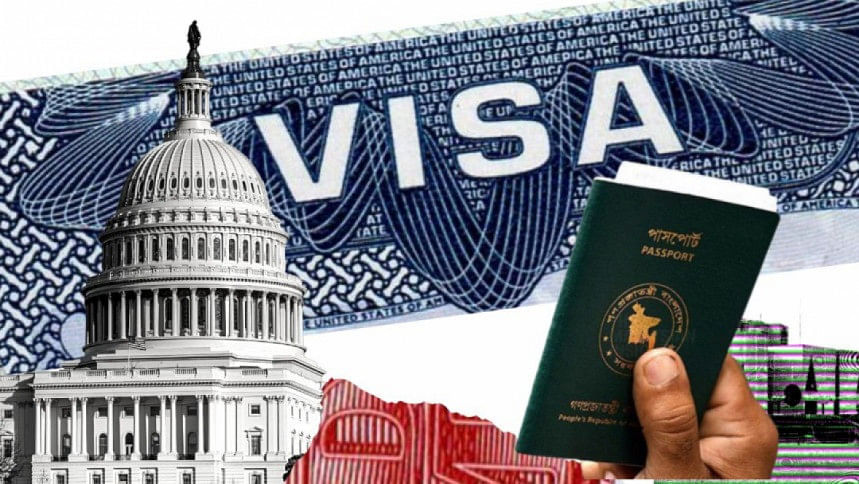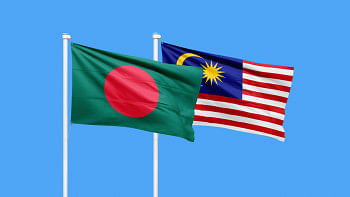The digital strip search: How America’s visa edicts redraw colonial borders in cyberspace

First, they demand our gold, then our spices, now our selfies. But the ledger always settles.
Act I: The notification
The alerts hit Kathmandu and Dhaka within 24 hours of each other—twin seismic pulses in the geopolitical nervous system. First, Nepal: "Effective immediately, all applicants for F, M, or J visas must set social media accounts to PUBLIC." Then Bangladesh: identical language, identical demand. No velvet gloves, no diplomatic sugarcoating. Just the sterile click of a bureaucratic mouse that echoed like a vault sealing shut.
In the monsoon-drenched lanes of Dhaka, medical student Arifa Rahman (not her real name) stared at her phone. "They want my family WhatsApp jokes? My cousin's wedding photos?" In Kathmandu, engineering aspirant Bikram Joshi (not his real name) scrolled through years of Tibetan solidarity posts. Both knew this wasn't vetting. This was digital strip search under open skies.
Act II: The algorithmic Raj
Let's be clear: 21st-century imperialism wears algorithmic robes. When the US State Department orders South Asian students to bare their digital souls, while exempting German or Japanese applicants, it resurrects the colonial "natives vs Europeans" divide. The platforms enabling this? Facebook, Twitter, Instagram—Western digital fiefdoms born from Pentagon partnerships and Silicon Valley venture capital. As Centre for International Governance Innovation (CIGI) scholars note, these are not neutral tools but "geo-economic weapons" where "winner takes all".
"Every visa adjudication is a national security decision," declares the notice from the US Embassy in Kathmandu. Translation: your dreams are now contingent on your Instagram likes.
This is a connectivity weaponised. This is America deploying its platform architecture. The brilliance? Forcing self-colonisation. Students now scrub profiles preemptively—deleting Palestine solidarity posts, hiding climate activism, and burying critiques of US drone strikes. The chilling effect is the feature, not the bug.
Act III: The multipolar counterpoint
Enters the subplot: a world rebalancing. As American soft power wanes, alternatives surge. Germany reports a 58 percent spike in South Asian students; Finland waives social media checks entirely. Meanwhile, Dhaka negotiates digital partnerships with Delhi—India's Unified Payments Interface (UPI) payment system now processes cross-border education fees in seconds.
The irony? The US condemns China's "social credit system" while implementing behavioural vetting via visa forms. Yet, as Carnegie scholars note, the Global South increasingly rejects this hypocrisy: "The central divide remains between the dominant North and the aggrieved South".
Act IV: Resistance in minor key
How to fight back? Nepal's foreign ministry quietly circulates a draft note: "Reciprocity demanded: US applicants must publish tax returns and gun ownership records." Bangladeshi hackers launch #EncryptTheSouth tutorials—teaching students to archive "private" profile versions before compliance.
Scholars at Dhaka University trace the policy's lineage: from British colonial "Thuggee Files" to Facebook's Cambridge Analytica scandal.
Their weapon? Dark humour. Memes flood Telegram: "My ancestors gave spices to colonisers. Now I give Zuckerberg my DMs."
Finale: The unsilenced South
This isn't just about visas. It's about whose digital bodies are deemed legible, harvestable, and disposable. When Arifa toggles her profile to "public," she hears echoes of her grandmother's stories: "The British measured our skulls to prove inferiority." Today's metrics are likes and network graphs.
Yet the revolt is subtle. Students create decoy accounts—carefully curated performances of apolitical banality. Others flood feeds with Tagore poetry or Bhutanese throat-singing videos, encrypting dissent in cultural noise. As one Kathmandu tweet goes viral: "You want my data? Here's a sonnet."
Epilogue
The embassies framed this as "security." But in the bazaars of Dhaka and the cybercafes of Kathmandu, they know the truth: data is the new spice, silicon the new soil. As the post-American world stirs, South Asia's response blends poetic defiance with technological pragmatism—a digital satyagraha unfolding one privacy setting at a time.
Zakir Kibria is a writer and policy analyst. He can be reached at [email protected].
Views expressed in this article are the author's own.
Follow The Daily Star Opinion on Facebook for the latest opinions, commentaries and analyses by experts and professionals. To contribute your article or letter to The Daily Star Opinion, see our guidelines for submission.

 For all latest news, follow The Daily Star's Google News channel.
For all latest news, follow The Daily Star's Google News channel. 










Comments